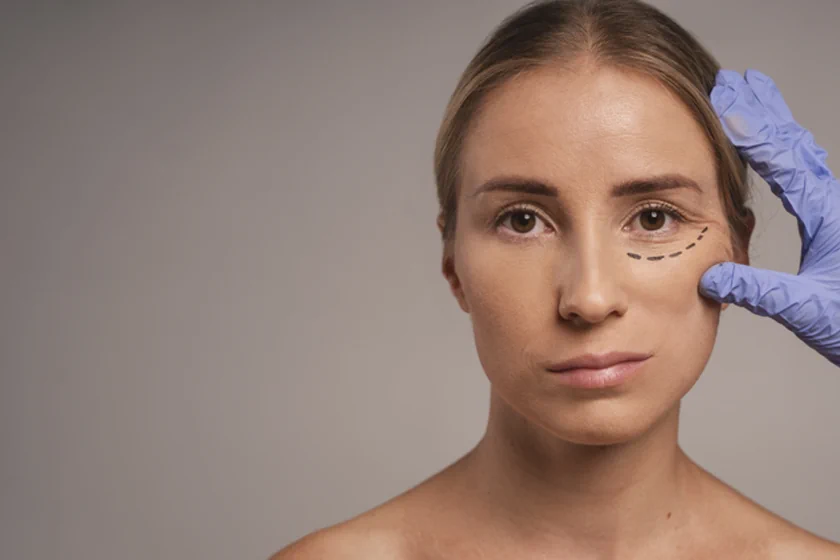|
Getting your Trinity Audio player ready...
|
Cataract surgery is one of the most commonly performed procedures worldwide, with over 62.6 million people being affected in India alone, and the annual incidence of cataract blindness is about 3.8 million.
As advancements in medical technology continue to enhance surgical techniques, the focus has shifted towards optimizing post-operative care to ensure swift and successful recoveries for patients.
Following cataract surgery, proper post-operative care plays a pivotal role in promoting healing, preventing complications, and maximizing visual outcomes. Studies indicate that diligent adherence to post-operative care protocols can significantly reduce the risk of complications such as infection and inflammation, ultimately leading to improved patient satisfaction and visual acuity restoration.
In this guide, we delve into essential cataract post-operative care tips backed by evidence-based practices and expert recommendations. Let’s explore the key principles and strategies for ensuring optimal outcomes in cataract surgery recovery.
Overview of Cataract and Its Impact on Vision
Cataracts can have a significant impact on vision, causing a gradual clouding of the eye lens and resulting in blurred or distorted vision. This can make it difficult to see objects clearly, especially in bright light or while driving at night.
Colors may appear faded, and glare from lights can be bothersome. As the cataract progresses, activities such as reading, watching TV, or recognizing faces may become challenging. In severe cases, cataracts can lead to complete vision loss if left untreated.
Vision correction with glasses or contact lenses may become less effective as the cataract worsens, ultimately necessitating surgical intervention to remove the clouded lens and restore clear vision.
Preparing for Cataract Surgery Recovery
Now that we are done with the basics, let’s get down to business and understand the necessary steps that you need to adhere to for ideal cataract post-operative care:
A. Pre-operative Instructions
Before undergoing cataract surgery, patients receive detailed pre-operative instructions from their surgeon or healthcare team. These instructions are designed to help patients prepare both physically and mentally for the procedure and its aftermath. Common pre-operative instructions may include:
- Medication management: Patients may be advised to continue taking certain medications as usual, while others may need to be temporarily stopped or adjusted prior to surgery. It’s essential to follow the surgeon’s guidance regarding medication use to minimize the risk of complications during and after surgery.
- Fasting guidelines: Patients are typically instructed to refrain from eating or drinking anything for a specified period before surgery. This fasting period helps reduce the risk of complications related to anesthesia and ensures a safe surgical experience.
- Eye drops: Patients may be prescribed an antibiotic or anti-inflammatory eye drops to use in the days leading up to surgery. These drops help prepare the eye for surgery and reduce the risk of infection and inflammation during the recovery period.
- Hygiene: Maintaining good eye hygiene is crucial before surgery. Patients may be advised to wash their face and eyelids thoroughly with a mild soap and water to reduce the risk of infection.
B. Arranging Transportation and Support:
Cataract surgery is typically performed on an outpatient basis, meaning patients can return home on the same day as the procedure.
However, patients will need someone to drive them to and from the surgical facility, as they will be unable to drive themselves immediately after surgery due to the effects of anesthesia and dilating eye drops.
In addition to transportation, patients may benefit from having a friend or family member accompany them to the surgical facility to provide emotional support and assistance with paperwork.
C. Preparing the Home Environment for a Comfortable Recovery:
After cataract surgery, patients will need to take certain precautions and make adjustments to their daily routine to facilitate healing and minimize the risk of complications. Here are some tips for preparing the home environment for a comfortable recovery period:
- Create a restful recovery space: Set up a comfortable area at home where the patient can rest and relax following surgery. This may include a cozy chair or recliner with plenty of pillows for support.
- Stock up on supplies: Make sure to have all necessary supplies on hand before surgery, including prescription medications, over-the-counter pain relievers, and any recommended eye drops. Additionally, consider stocking up on easy-to-prepare meals and snacks to minimize the need for cooking during the initial recovery period.
- Minimize fall hazards: Remove any potential trip hazards from the home, such as loose rugs or electrical cords, to reduce the risk of falls during the recovery period. Ensure that pathways are clear and well-lit to facilitate safe movement around the house.
Essential Post-Cataract Surgery Precautions and Tips
Following cataract surgery, proper post-cataract surgery precautions and care are crucial for promoting healing, minimizing complications, and optimizing visual outcomes. Here are five essential tips to facilitate a smooth recovery process:
A. Medication Management:
Adhere to the prescribed medication regimen, including antibiotic and anti-inflammatory eye drops, as directed by your surgeon. These medications help prevent infection and inflammation, promoting optimal eye healing.B. Eye Protection:
Wear the protective eye shield provided by your surgeon, especially while sleeping, to prevent accidental rubbing or pressure on the operated eye. Additionally, use sunglasses outdoors to shield the eyes from bright sunlight and dust particles.
C. Rest and Recovery:
Take adequate rest and avoid strenuous activities, including heavy lifting and bending, for the first few days following surgery. Allow your eyes to rest and recover, minimizing strain and promoting healing.
D. Hygiene and Wound Care:
Maintain good hygiene by avoiding touching or rubbing the operated eye and keeping the area clean and dry. Follow the surgeon’s instructions for gentle cleansing of the eye and surrounding area to prevent infection.
E. Follow-Up Appointments:
Attend all scheduled follow-up appointments with your surgeon to monitor healing progress, assess visual acuity, and address any concerns or complications promptly. These appointments are essential for ensuring optimal outcomes and addressing any post-operative issues effectively.
Understanding the Expected Timeline for Recovery and Vision Improvement
Immediately following surgery, it is common to experience blurry vision, redness, and sensitivity to light. These symptoms should gradually improve in the days following the procedure. Patients may also be prescribed eye drops or medications to aid in healing and prevent infection.
Within the first week after surgery, most patients should notice some improvement in their vision. It is important to follow all post-operative care instructions provided by your surgeon to ensure proper healing and optimal results. Patients may have follow-up appointments in the first few weeks to monitor progress and address any concerns.
By the end of the first month, many patients will experience significant improvements in their vision. However, it is important to remember that full results may not be apparent until several months after surgery. Some patients may continue to experience fluctuations in vision during the healing process before ultimately achieving their desired outcome.
FAQs
What is the post-operative care for cataract surgery?
Post-operative care for cataract surgery involves several key components. Patients are typically instructed to use prescribed eye drops to prevent infection and inflammation and protect the eye with a shield, especially while sleeping. They should avoid strenuous activities and rubbing or touching the operated eye. Follow-up appointments with the surgeon are essential for monitoring healing progress and addressing any concerns promptly.
What are the rules for recovery after cataract surgery?
Recovery after cataract surgery involves following specific guidelines to ensure optimal healing and visual outcomes. Patients should avoid strenuous activities, heavy lifting, and bending for the first few days following surgery. While some rest is recommended, patients can resume light activities as tolerated. It's essential to attend all scheduled follow-up appointments with the surgeon to monitor healing progress and address any complications promptly.
How much bed rest is required after cataract surgery?
Bed rest after cataract surgery is typically minimal. While some rest is recommended immediately after the procedure to allow the eye to heal, patients can resume light activities as tolerated. It's essential to avoid strenuous activities and heavy lifting for the first few days following surgery to prevent complications and promote optimal healing.
What is the most common complication after cataract surgery?
The most common complication after cataract surgery is posterior capsular opacity (PCO), also known as posterior capsular opacification or secondary cataract. This occurs when the thin membrane behind the artificial lens becomes cloudy, leading to blurred vision similar to that experienced before cataract surgery. However, this condition can often be corrected with a simple laser procedure called YAG laser capsulotomy.
Can I watch TV after cataract surgery?
Patients can typically watch TV after cataract surgery, but it's essential to follow the surgeon's instructions regarding screen time and eye care. While watching TV itself is not harmful, patients should avoid excessive screen time, especially in the immediate postoperative period, to prevent eye strain and promote healing. Additionally, patients should use prescribed eye drops and wear sunglasses if watching TV in a bright environment to protect the eyes from glare and UV rays.
Conclusion
In closing, the journey towards clearer vision doesn’t end with cataract surgery—it’s just the beginning of a new chapter. By embracing the post-operative care tips outlined here, you’re not just caring for your eyes; you’re investing in your quality of life.
Remember, behind every successful recovery is a supportive and skilled professional like Dr. Surbhi Kapadia in Vadodara. With her expertise and personalized approach, Dr. Kapadia ensures that each patient receives the individualized care and attention they deserve, paving the way for a brighter, clearer tomorrow.
So, as you embark on this journey, trust in the guidance of Dr. Kapadia and embrace the possibilities that lie ahead.
![]()







